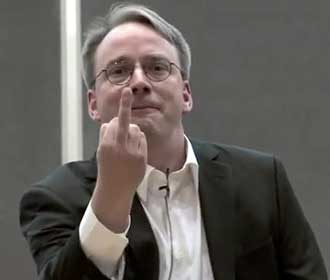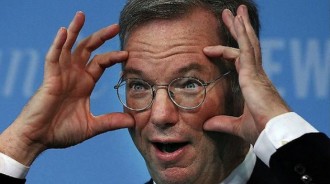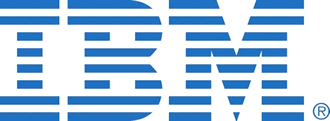 The creator of Linux, Linus Torvalds, has been explaining his comments to a New Zealand conference about having to be nice.
The creator of Linux, Linus Torvalds, has been explaining his comments to a New Zealand conference about having to be nice.
Torvalds shocked the conference when he fielded a question from Nebula One developer Matthew Garrett that accused Torvalds of having an abrasive tone in the Linux kernel mailing list. “Some people think I’m nice and are shocked when they find out different,” Torvalds said in response. “I’m not a nice person, and I don’t care about you. I care about the technology and the kernel—that’s what’s important to me.”
Apparently this was deeply shocking as apparently open sourcers secretly believed that Torvalds really loved them and they were heart broken.
Torvalds sent a lengthy statement to Ars Technica responding to statements he made in Auckland, New Zealand earlier that day about diversity and “niceness” in the open source sector.
“What I wanted to say [at the keynote]—and clearly must have done very badly—is that one of the great things about open source is exactly the fact that different people are so different,” Torvalds wrote via e-mail.
“I think people sometimes look at it as being just ‘programmers,’ which is not true. It’s about all the people who are more oriented toward commercial things, too. It’s about all those people who are interested in legal issues—and the social ones, too!”
Torvalds then seems to have made matters worse by daring to point out that Open Source is not a religion and you don’t need to have faith.
“‘Open source’ as a term and as a movement hasn’t been about ‘you have to be a believer.. It’s not a religion. It’s not an ‘us vs them’ thing. We’ve been able to work with all those ‘evil commercial interests’ and companies who also do proprietary software. And I think that was one of the things that the Linux community (and others—don’t get me wrong, it’s not unique to us) did and does well,” he said.
He sent a second e-mail to Ars about the topic of “niceness”.
“I don’t know where you happen to be based, but this ‘you have to be nice’ seems to be very popular in the US,” Torvalds continued, calling the concept an “ideology.”
Torvalds lambasted the “brainstorming” model of having a criticism-free bubble to bounce ideas around.
“Maybe it works for some people, but I happen to simply not believe in it… I’d rather be really confrontational, and bad ideas should be [taken] down aggressively. Even good ideas need to be vigorously defended.”
He admitted that maybe it was just because he liked arguing and was not a huge believer in politeness and sensitivity being preferable over bluntly letting people know your feelings.
“I understand that other people are driven away by cursing and crass language when it all gets a bit too carried away.” But he thinks that the open source movement might simply need more “people who are good at mediating rather than just asking developers to calm their own tone or attitude.


















